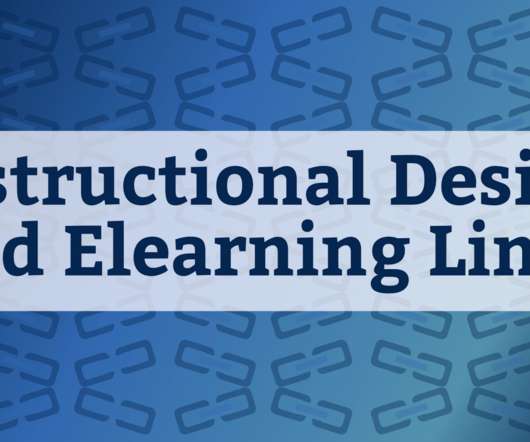4 Learning Theories Every Online Educator Should Know
LearnDash
FEBRUARY 2, 2021
If I had to guess, I would say that most online educators don’t think of themselves as “instructional designers.” They usually view themselves as subject matter experts —they know their area very well, and are starting an online course to share their expertise with others who are interested in learning it. Let’s look at what they are.





















































Let's personalize your content